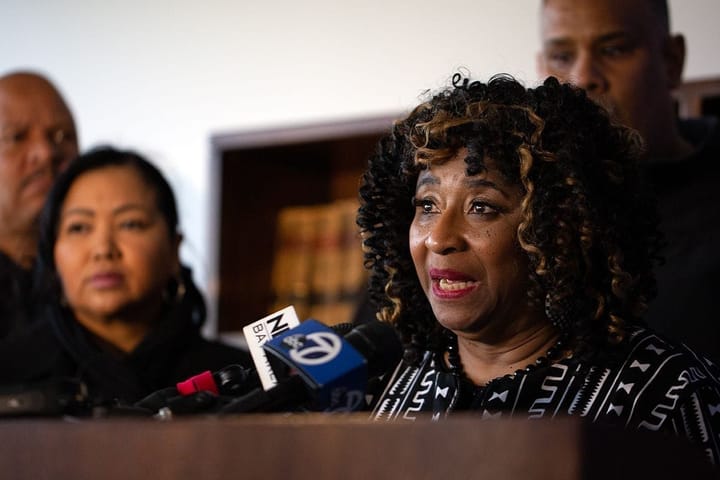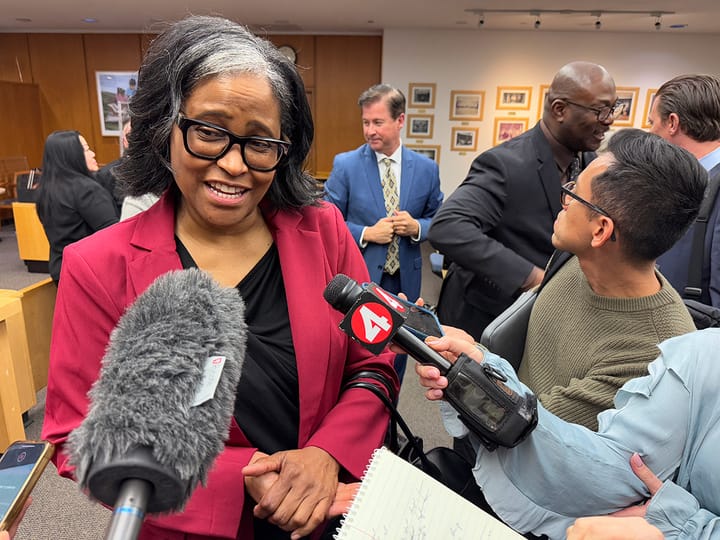Alyx Herrmann homicide: Killer guilty of first-degree murder
Friends and family say they hope the tragedy will help more people recognize and escape from domestic violence.
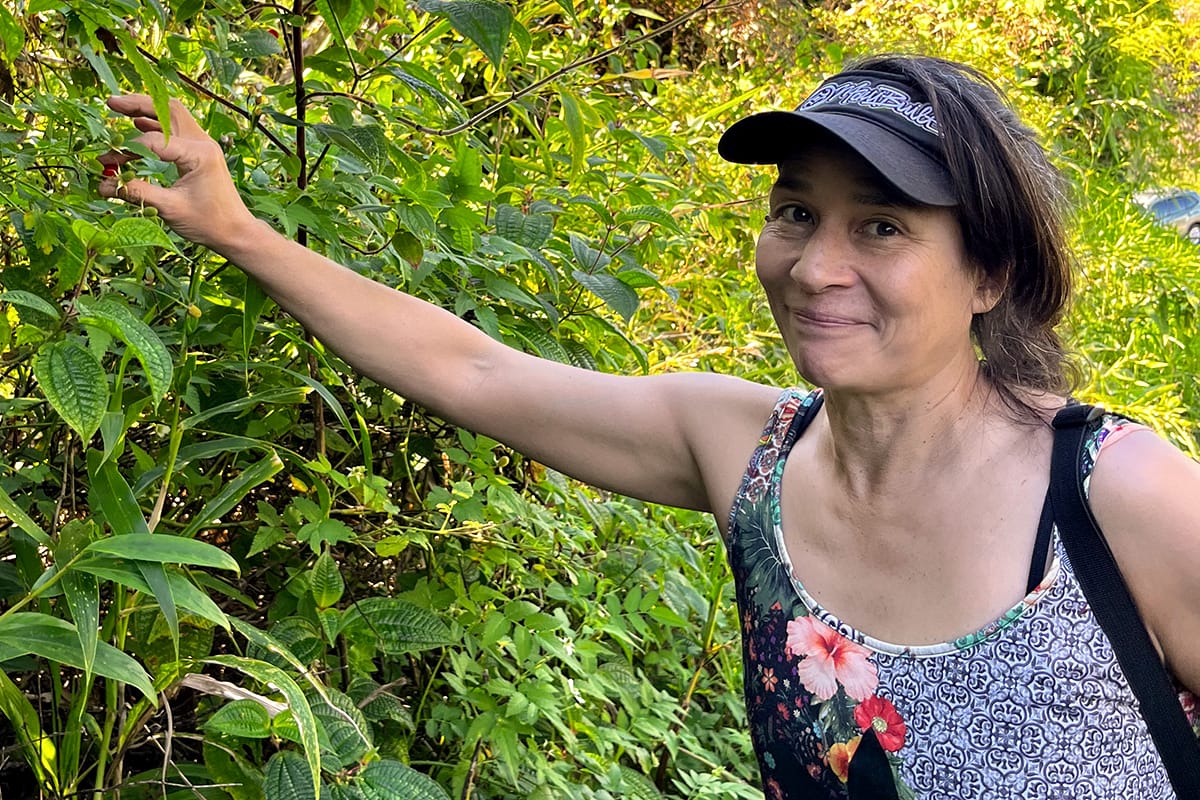
After a day of deliberations, jurors brought back a guilty verdict in what prosecutors say was the domestic violence murder of Alyx Herrmann at her Capitola home in December.
Authorities say Theobald Lengyel, a one-time member of the rock band Mr. Bungle, strangled Herrmann to death on Dec. 4, 2023, after restraining her for nearly an hour and asking her repeatedly if she was ready to die.
Then he buried her body in Tilden Regional Park in the Berkeley Hills and refused to tell police where she was.
Herrmann, 61, was missing for 28 days while her family and friends tried frantically to find her.
Lengyel, 55, admitted early on to killing her. They had been together five years.
His attorney, Annrae Angel, argued for manslaughter rather than murder, saying Lengyel was provoked into committing the crime.
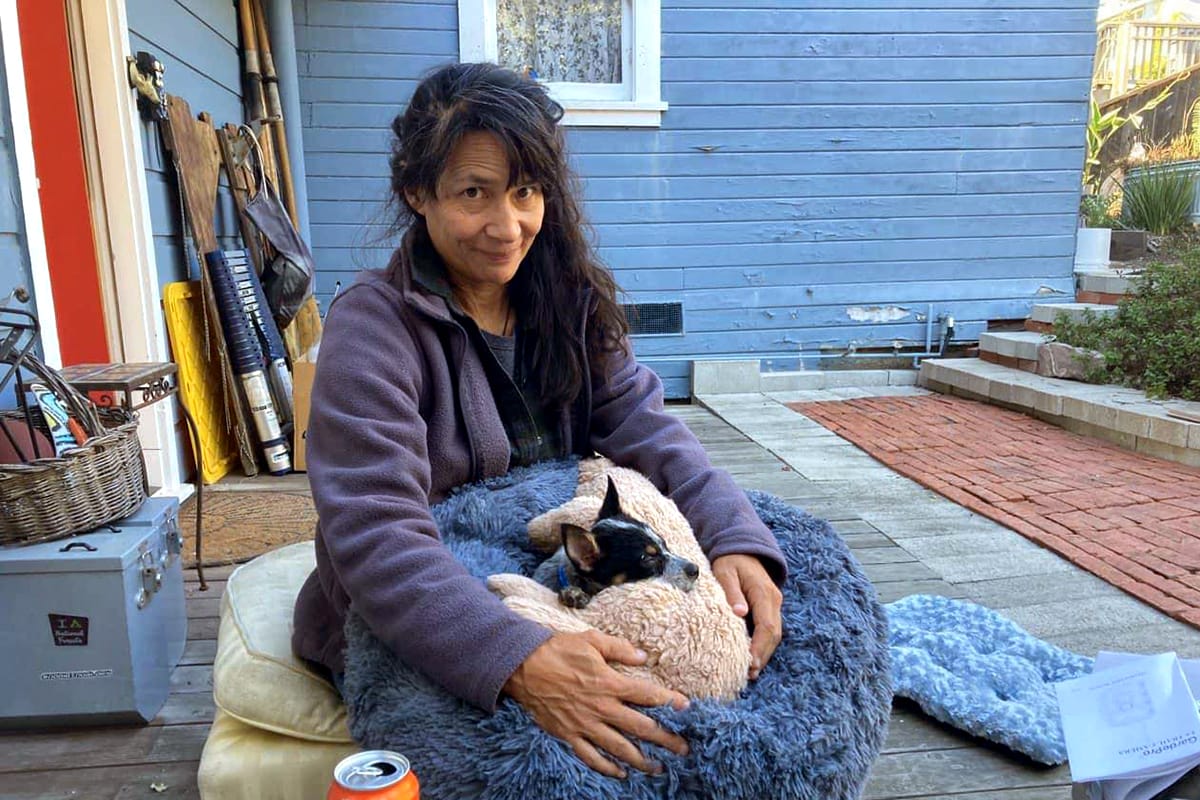
After the verdict, jurors told The Scanner they had not been convinced by that argument. But they did consider it at length, as the seriousness of the case required.
Herrmann recorded the final hours of her life on her cellphone but authorities did not find the audio file until partway through the murder trial, which began in August.
The shocking discovery led to a weeklong break in the proceedings along with two attempts by the prosecution to make Lengyel ineligible for parole if convicted.
Judge Nancy de la Peña denied those motions, largely on process grounds.
That means Lengyel will face a sentence of 25 years to life now that he's been found guilty of first-degree murder.
"You were there when this woman left this earth"

Closing arguments in the Alyx Herrmann murder trial went on for 1.5 days last week, beginning Tuesday afternoon and lasting all day Wednesday.
Prosecutors Emily Wang and Conor McCormick represented the Santa Cruz County district attorney's office in the trial.
"Exactly one week ago, we all sat here in this courtroom and we listened to that woman, Alyx Herrmann, beg that man, the defendant, for her life," Wang told jurors, as she projected a photograph of the couple on large screens and reminded jurors of the chilling 3-hour recording, which they had heard in full. "You heard her struggle and try to fight back.… You heard how indifferent he was to her cries for help."
"It was brutal. And it was horrific. You heard it when her voice simply gave out," Wang continued. "You were there when this woman left this earth."
"And she wasn't just any woman," she said. "She was a daughter, a sister, a mother, a friend. A lover of the ocean, an athlete, a teammate, an intellect. A person who saw the best in the defendant — who always had a hope for their relationship."
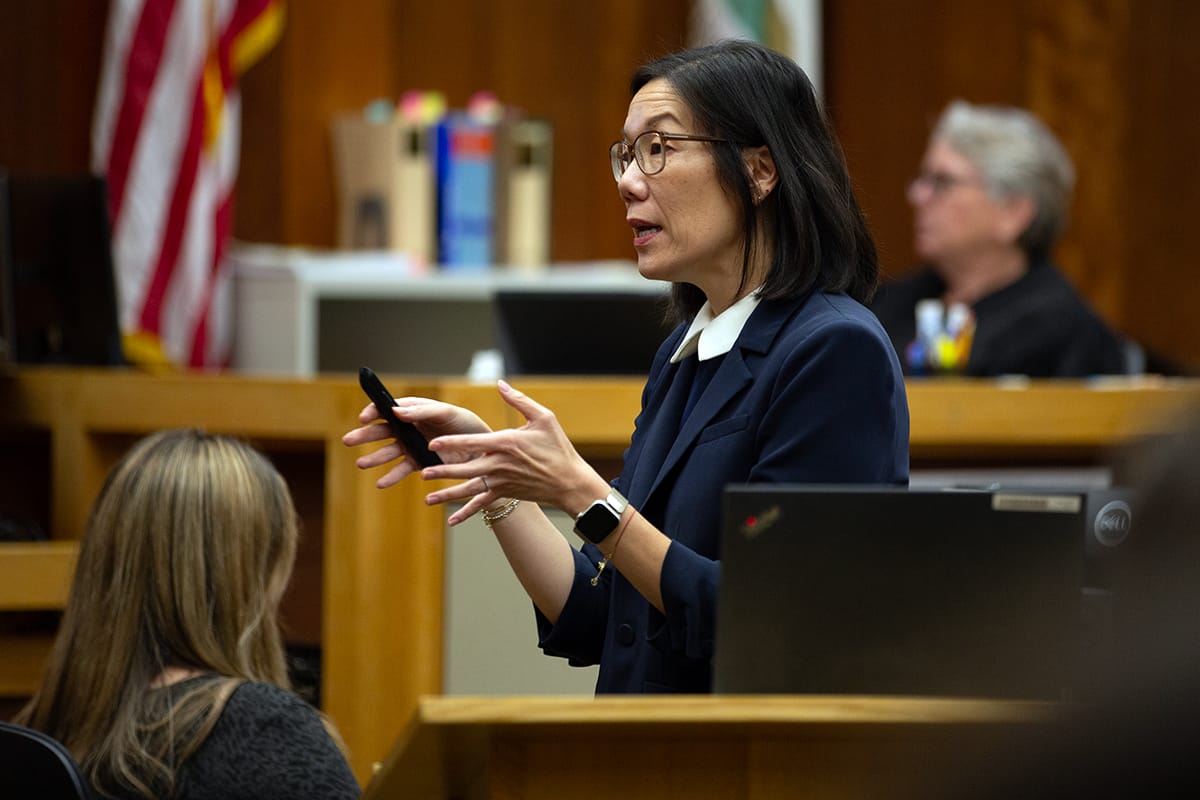
Throughout closing arguments, the prosecution painted a picture of the defendant as abusive and controlling in multiple relationships with women — a man with a history of alcohol abuse who hated taking "no" for an answer.
During their final fight, Wang told jurors, Lengyel had badgered Herrmann to go out and play pool with him, asking her about it no less than 16 times.
But she was supposed to be at work in Berkeley the next morning. She needed to get to bed.
As the conflict progressed and the night wore on, Herrmann would eventually tell Lengyel to leave her house 27 times.
He would threaten to kill her 33 times before he finally did it, Wang said.
The recording revealed Lengyel's threats and gaslighting, she said, as well as his preoccupation with power and domination, physical violence and verbal abuse.
"There is so much there, it could take me days" to unpack, she added, of the complex dynamics in the heartrending recording.
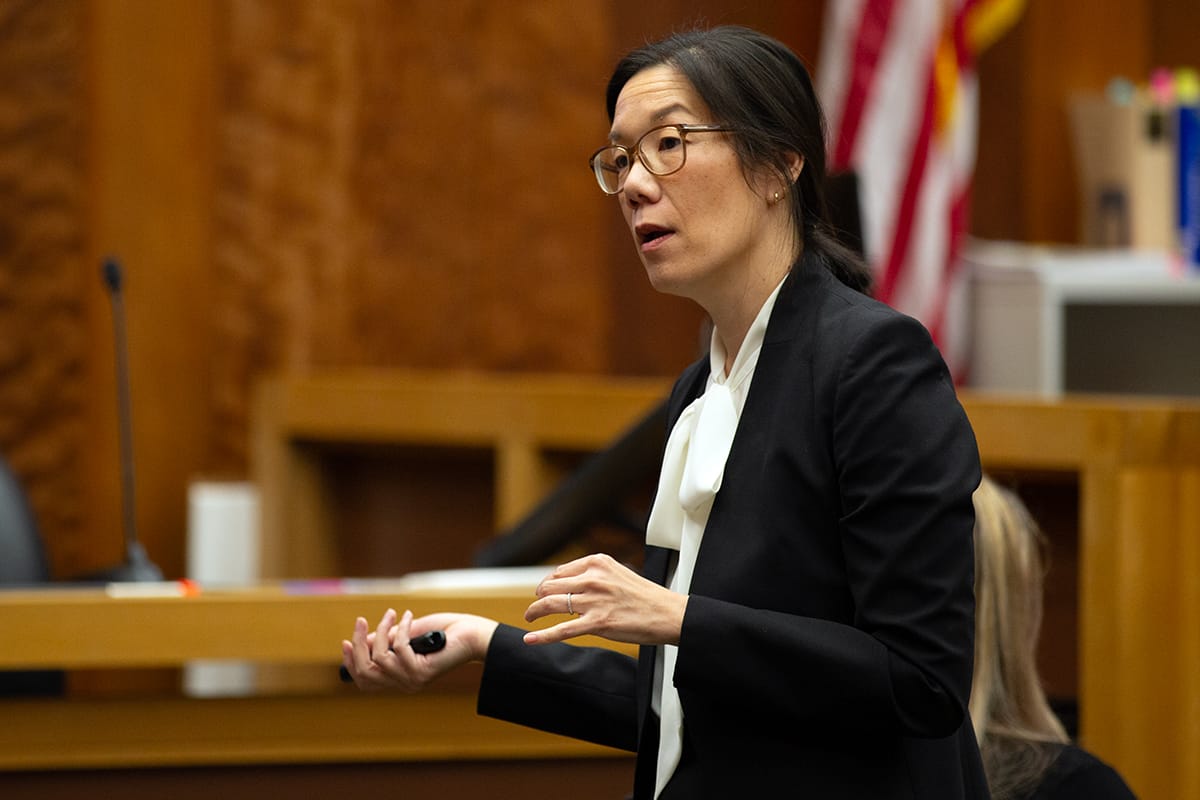
At one point, Lengyel punched Herrmann in the face and broke her nose, Wang argued.
The audio also captured Herrmann's increasingly labored efforts to breathe and her bloodcurdling screams before the final struggle.
"She yells 'stop it' 48 times," Wang said. "He strangles her for 5 minutes."
Wang shared the statistics toward the end of her lengthy arguments, perhaps offering a snapshot by the numbers to help make the difficult material more digestible.
In the final minutes of her life, between bouts of strangulation, Herrmann managed to say, "It's not my fault," as Lengyel told her: "You wouldn't fucking play nice."
It was one of the last things he said to her.

"I just want people to, like, play along," he had said earlier in the night, according to Wang: "You used to just do what I want."
On Dec. 4, Herrmann had decided to say no, telling Lengyel to get out of her house, out of her life, out of her bank accounts — she had been covering a number of his expenses because she was working and he was not, Wang said.
"For all of Alyx's intelligence and care for this man, she unfortunately did not see what everybody else had seen," Wang said. "She did not know how much danger she truly was in that evening."
During the trial, the jurors heard six weeks of evidence from 35 prosecution witnesses, including from a domestic violence expert who described the cycle of abuse that accompanies it.
"The most dangerous time for a woman in an abusive relationship is when she tries to leave," the expert had testified.
Defense: "It was gonna be a different trial"
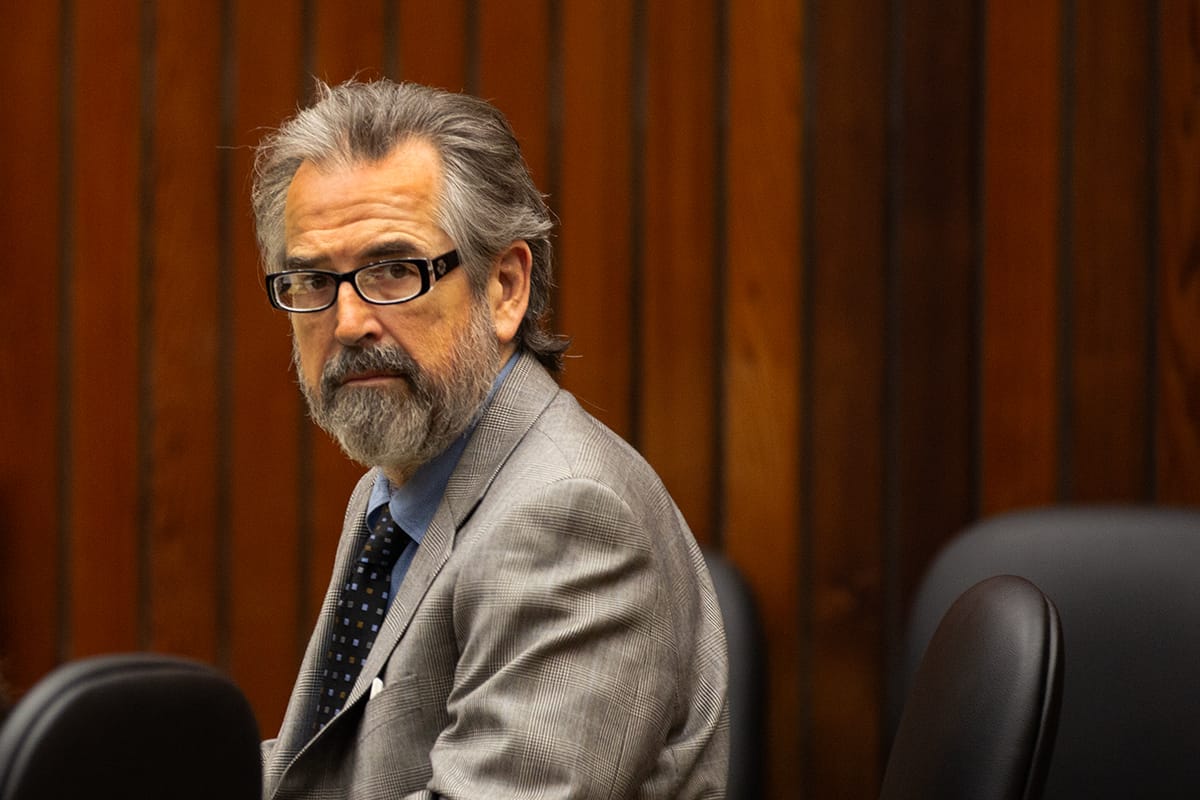
When it was defense attorney Annrae Angel's time for closing arguments, she acknowledged the heavy emotional impact the case had already taken.
"You've heard Alyx Herrmann die," she told the jury. "How can you not be affected by that? You will be. You are. There's no way you can avoid that."
Angel, who has been a defense attorney for more than 30 years, told jurors that their job, in the end, would be to remain impartial and apply the law to the evidence as it was presented.
"Most of what you heard is true," she said. "It's just about how you are going to interpret it."
She noted that the jury was "not really dealing with charges," but instead considering "levels and degrees."
That's because, from early on, Lengyel admitted he had killed Alyx Herrmann.
But his defense had been that the crime did not amount to murder, which requires certain legal elements to be proven beyond a reasonable doubt.
The defense argued against premeditation and said Lengyel did not intend to kill Herrmann that night.
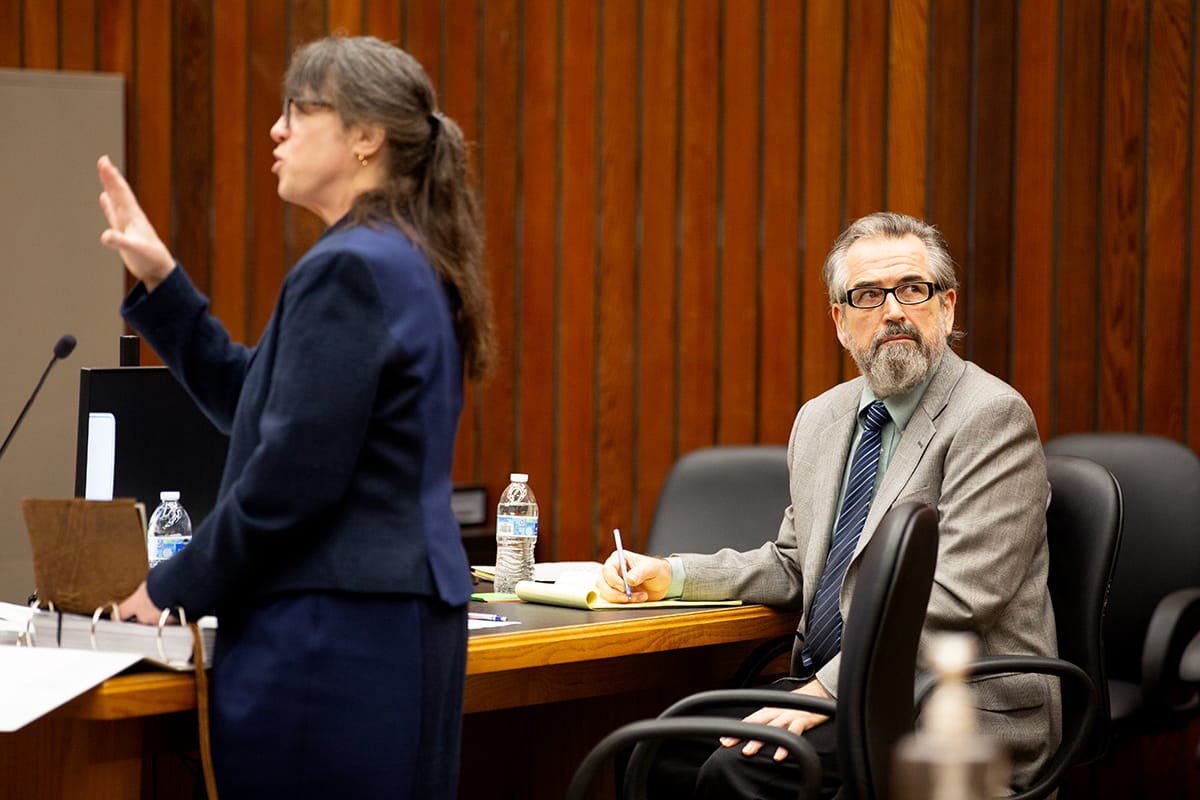
Angel told jurors she saw the trial in two parts.
"When we started … it was gonna be a different trial," she said. "And then the audio tape surfaced and everything changed. At that point, a lot of the stuff that we were thinking about and listening to beforehand almost didn't seem to matter."
The defense had indicated earlier on that it would emphasize that Herrmann's death happened quickly or was an accident. The recording changed all that.
Before getting into the recording, however, Angel challenged the prosecution's claim that Lengyel and Herrmann had been in a domestic violence relationship with a history of abuse.
"I don't buy into that and I'm asking you not to buy into that," she told the jury.
She questioned the credibility of several witnesses who testified about tension and other problems between Lengyel and Herrmann.
Angel also urged jurors to dismiss testimony from Lengyel's ex-wife and one of his sisters who had described what they saw as controlling and violent behavior over the years.
Calling their descriptions "interesting," she told jurors: "I'm not sure how much their testimony really matters."
Angel said each woman had primarily shared one-time anecdotes rather than anything that established a pattern and said that, contrary to what the prosecution said, her client had taken "no" for an answer many times.
Angel said that, in one incident — where Lengyel had reportedly tried to set a building on fire while he was in Hawaii with Herrmann visiting her father — Herrmann had told him he had to fly back to California on his own.
"He left," Angel said. "He came home."
Another time, Lengyel asked Herrmann to go to Portland with him but she declined.
"Sometimes she said no and he accepted it," Angel said, disputing the prosecution's narrative about her client as rigid and controlling.
Defense: "No rulebook" after homicide
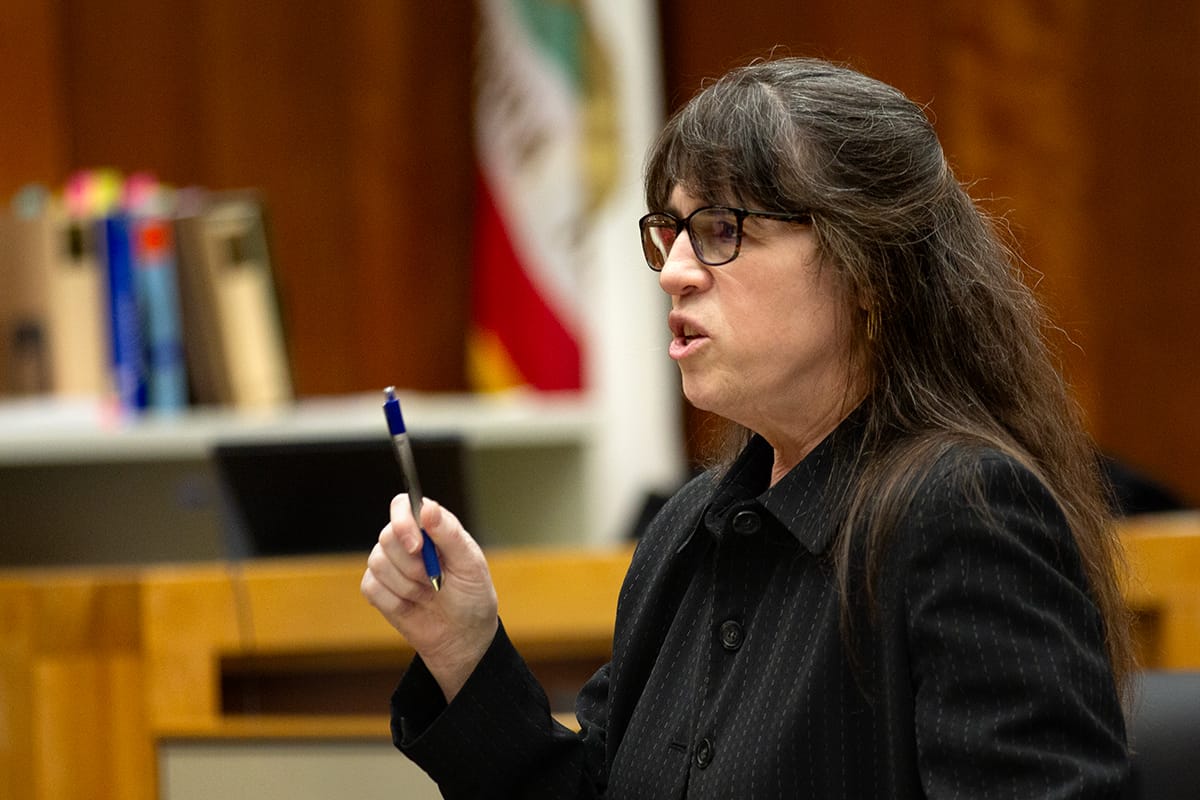
The bulk of Angel's closing argument, however, focused on the seemingly damning recording of the last fight between Herrmann and Lengyel and the violence that erupted from it.
"When that audio came up, it really did change a lot," she said. "I'm going to be asking you to decide whether or not this was first-degree murder or whether or not it was something else because of provocation."
Legally, she explained, provocation could reduce first-degree murder to second. It could reduce murder to manslaughter.
Angel then went into detail on the dynamics of the recorded conversation, arguing that Herrmann had been "upset" about broader issues in the relationship, which all came to a head that night after Herrmann and Lengyel had been drinking.
In addition to provocation, Angel said the jurors could consider how alcohol may have factored into Lengyel's decisions.
Herrmann, she said, was "mad" about paying the bills and working while Lengyel wasn't doing either, and exasperated with his moods and drinking, along with other issues.
"She's just going at all of it," Angel said. "She's angry and she's showing her anger."
Angel did her best not to explicitly blame Herrmann for what happened — but she did put the focus on how Herrmann's tone and comments may have affected Lengyel's decisions as the night wore on.
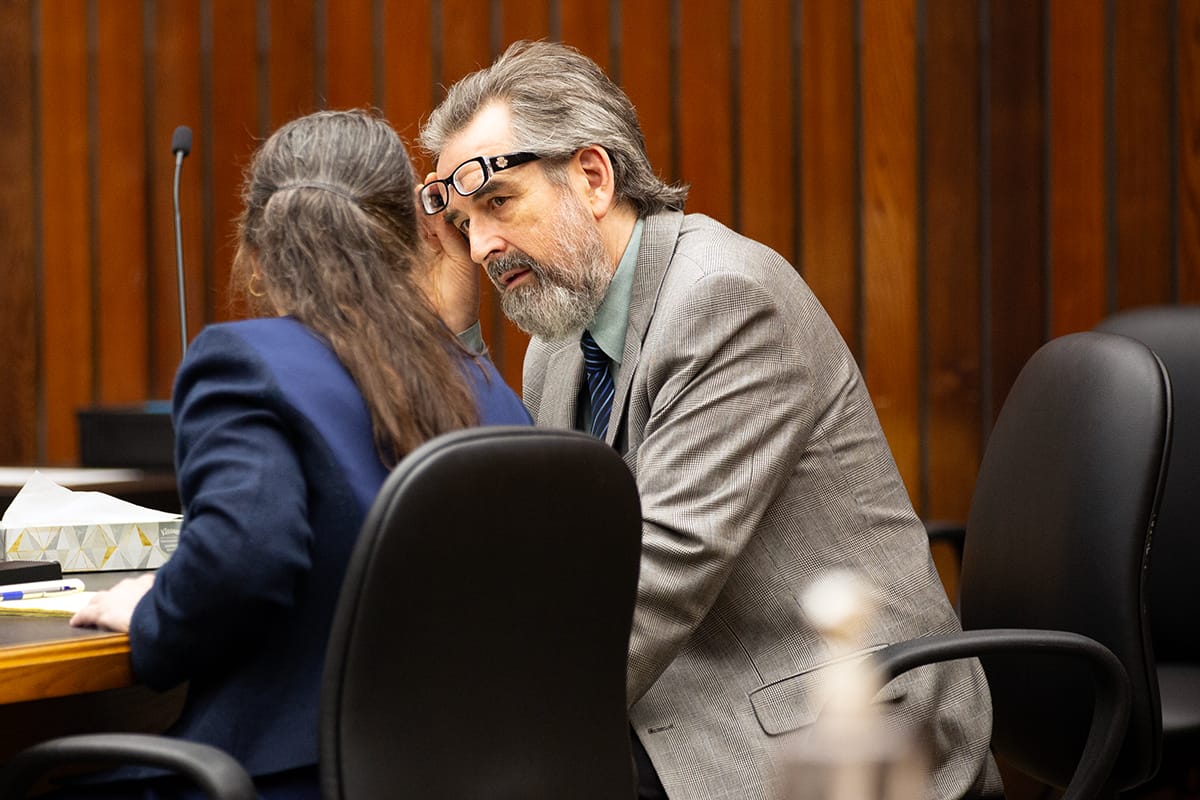
At the same time, Angel tried to soften the impression of Lengyel, asking jurors not to put too much weight into his "hyperbolic way of speaking," which included references to "shooting people" and killing his dog along with threats to kill Herrmann and himself.
Angel referred to text messages her client sent as "almost childish in nature" and urged jurors not to judge too harshly various decisions he had made.
Angel also said it wasn't clear from the recording "who started the physicality," but did acknowledge that, eventually, Lengyel was clearly restraining Herrmann.
She argued that, at one point, Lengyel may have tried to "hug her from behind," which in his "drunk mind," he thought "would make everything better."
In the audio, some "big noises" and crashing could be heard around that time, as Herrmann equated whatever Lengyel had done to a "cop hold."
"There's other noises in the background," Angel said. "What those are, I don't think we can know."
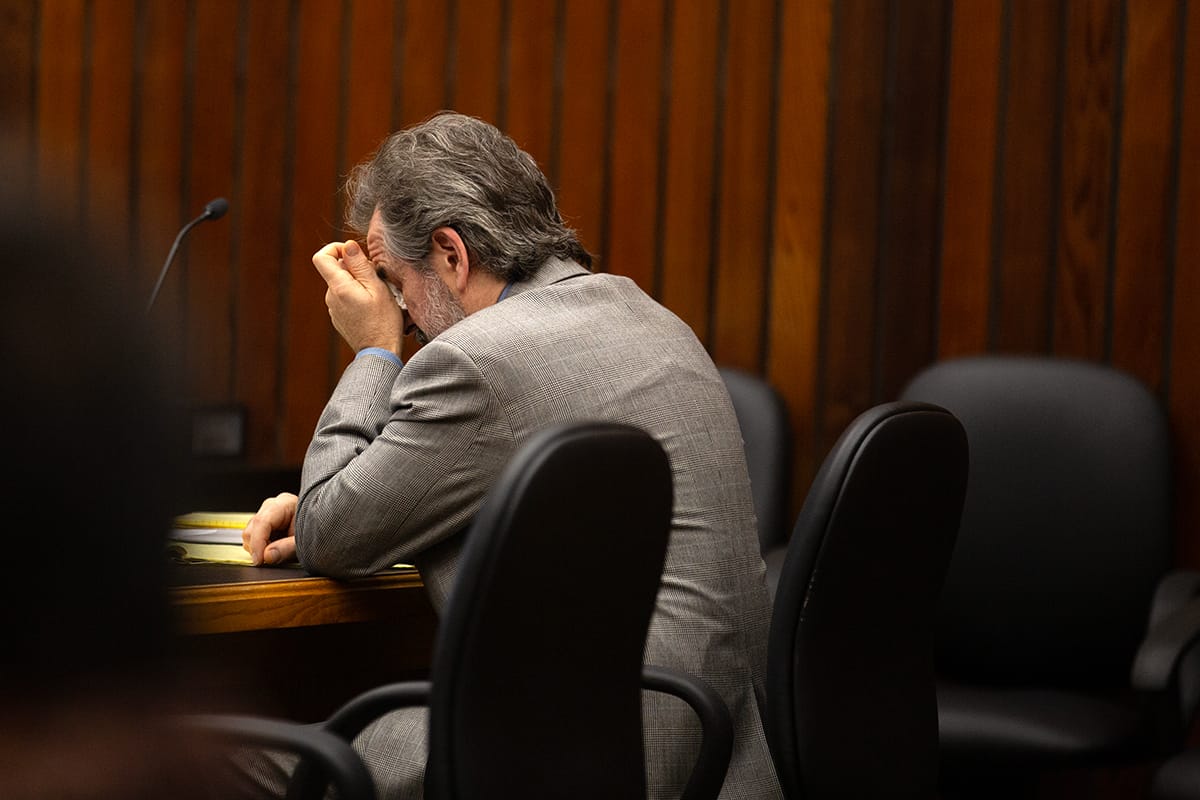
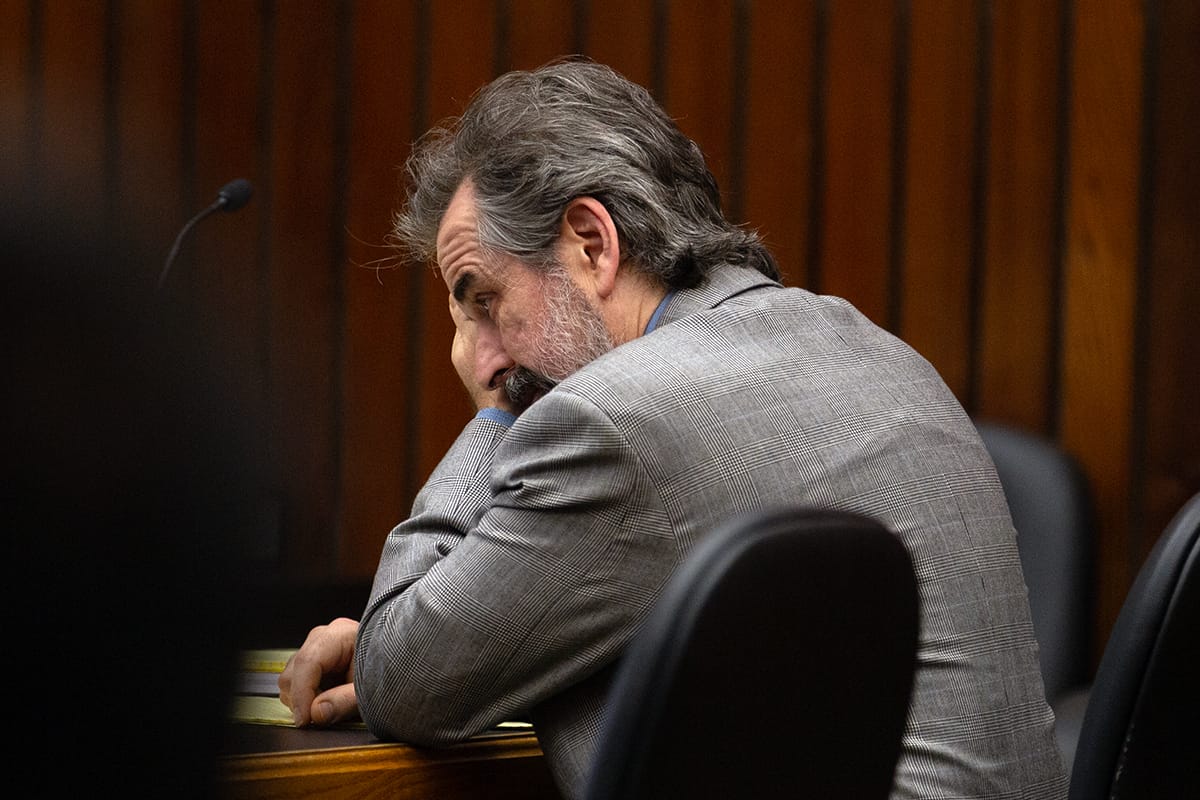
Theobald Lengyel wipes tears from his eyes during closing arguments last week. Emilie Raguso/TBS
At one point in the audio, Herrmann is clearly shocked and incredulous after Lengyel punches her in the face.
Later, she bites him to try to stop him from strangling her.
"I think that is where things sort of just ratchet up quite a bit. And it's heartbreaking, there's no question about it," Angel said. "This is a passionate argument between these two people and it ends where it ends."
For most of the day, and most of the trial, Lengyel sat stoically at the defense table without showing much emotion.
But, at one point last week, he appeared to wipe tears from his eyes when Angel read aloud the lyrics of a love song he had written about Herrmann.
Angel urged the jury to reconsider how they might view fabricated text messages Lengyel sent between his phone and Herrmann's after he killed her.
Angel said the texts didn't necessarily mean Lengyel was trying to cover up the crime.
"Sometimes people write messages to dead people," she said. "There's no rulebook for how somebody should act after they have committed a homicide, especially against somebody they loved."
Alyx Herrmann: "You are not gonna rewrite history"
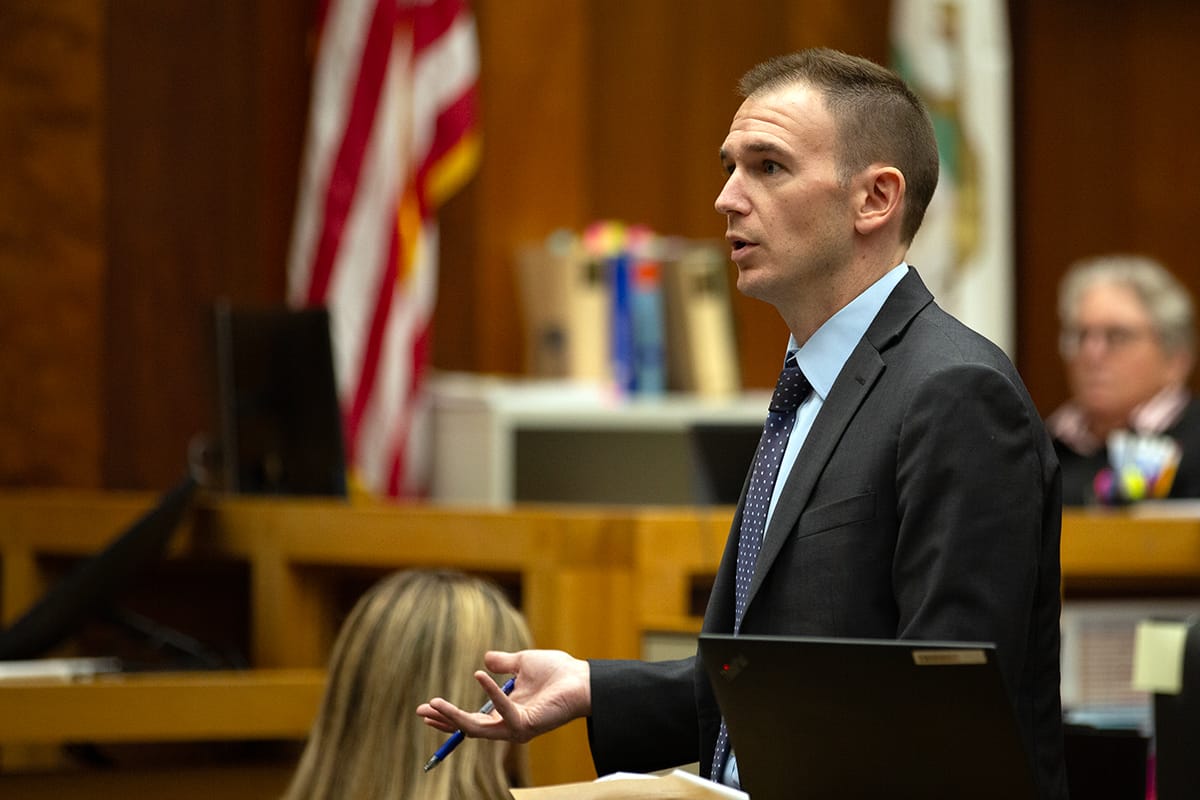
On Wednesday afternoon, Conor McCormick made the final closing arguments for the prosecution.
He picked up close to where Angel left off, arguing that there is, in fact, guidance on how people are supposed to behave in a civil society: It's called the penal code, he said.
The penal code includes laws about homicide as well as how to behave after the fact, such as not hiding key evidence.
"There is a rulebook. There are laws — and we're all expected to behave by them," McCormick said.
In all of Angel's arguments, he added, she had failed to explain what kind of provocation "would justify killing a woman in her own home after she's told that man to get out of her house over 30 times."
The recording made it clear how Herrmann had stood up to Lengyel's attempts to gaslight her, McCormick said, and how she finally told him to get out of her life.
"You wanted me to go play pool. I did not wanna go play pool," Herrmann had told him. "You were dragging me. That is what happened. You are not gonna rewrite history."
Prosecutor: "That's not hyperbole"
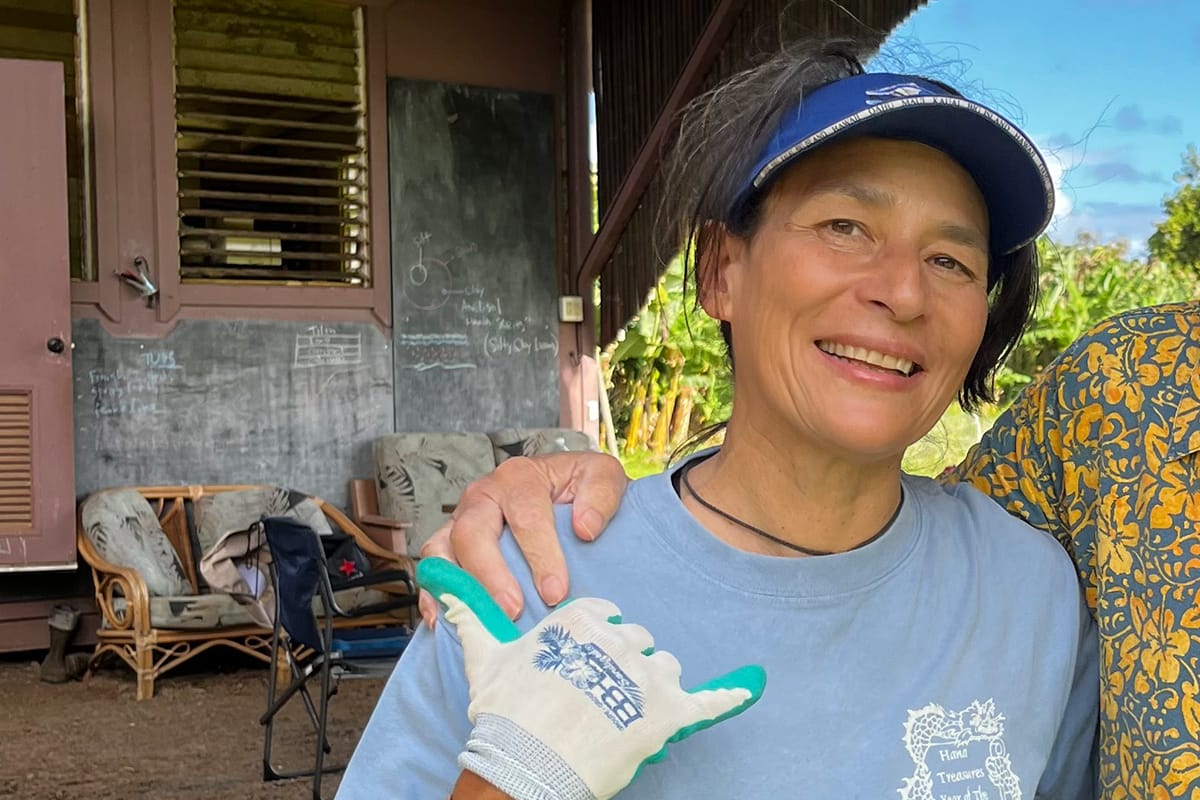
At times in the final recording, Lengyel equated himself to a guru and a genius.
Early on, he talked about having restraint — because he was capable of killing Herrmann but wasn't going to do it.
During the conversation, McCormick said, Lengyel belittled Herrmann and repeatedly threatened to kill her, saying he could "mash your fucking brain" and asking if she wanted to die by "the phone cord," "blunt force trauma" or "choking."
"And then he does it," McCormick said. "That's not hyperbole."
He said it was clear Herrmann was exasperated with Lengyel, as she told him repeatedly that she needed to get to sleep while he insisted on pulling her into his "attempt at an intellectual conversation."
Herrmann described the back-and-forth as a "battle of wills" and a relentless quiz where Lengyel already knew the answers.
During her closing argument, Angel had referenced "a moment" where Lengyel and Herrmann almost seemed to reconcile. Had that happened, Angel said, tragedy could have been averted.
McCormick said Lengyel actually had countless chances to make different choices.
"All he had to do was leave," McCormick said. "All he had to do was go play pool. All he had to do was not kill her."
"Get your shit. Turn the lights off on your way out," Herrmann had eventually told him.
"That could have been the moment right there," McCormick said.
As the violence ramped up, Herrmann repeatedly tried to reason with Lengyel — to get him to reconsider what he was doing, the prosecutor said: to think about his children, to think about his future. But he would not be swayed.
"It's a felony, you know?" she told him.
"Oh yeah," he said. "For sure."
"It's not too late to stop it," she told him.
"You hear that he's getting satisfaction from this," McCormick said. "This is what he wants to happen."
McCormick reminded jurors how Lengyel had cleaned up silently after the murder, fabricated texts and calls to make it seem like Herrmann was still alive, and then stripped her naked, drove her to Tilden park and buried her.
The more you look at the facts, he said, grief and remorse didn't seem like reasonable explanations for everything Lengyel had done.
"Is there a reason? Yeah, there is reason," McCormick said. "It's because he is a domestic violence abuser. You could find him guilty of first-degree murder based on those last few minutes alone."

Cellphone, Apple Watch data helped solve case
Earlier in the trial, cellphone data expert Michael Pezzelle took the stand to describe how he had put together a timeline of Herrmann's and Lengyel's digital activity to show their movements around the time of the murder.
Herrmann's cellphone data had shown her leaving home Sunday, Dec. 3, 2023, for a paddling event in the Santa Cruz harbor. She came home a few hours later. It was the last time she would leave her house.
On Monday, Dec. 4, Lengyel's phone records showed him going to an appointment in downtown San Jose — which other records indicated was for court in a felony animal cruelty case he was facing in Santa Clara County.
Flock surveillance cameras showed him returning to Herrmann's home in Capitola early that evening after stopping at a nearby liquor store.
Pezzelle also testified about how Herrmann's Apple Watch data showed her heart rate rising to 122 bpm during the 9-10 p.m. hour and ranging from 67 bpm to 114 bpm from 10-11 p.m.
From 11 p.m. to midnight, Herrmann's heart rate went as high as 123 bpm, falling to 47 bpm at 11:44 p.m., the final Apple Watch reading.
A doctor later testified that anything below 50 bpm is in the range of bradycardia, or slow heart rate, which can result from strangulation.
Pezzelle also testified about texts between Herrmann's phone and Lengyel's phone after her death, which other witnesses said had been fabricated by Lengyel to throw off investigators when Herrmann was "missing."
Pezzelle said it had stood out to him because the texts after the low heart rate reading were recorded when the phones were in close proximity, apparently in the Capitola home.
It was the only time, during the weeks of activity he reviewed, when there were texts between the phones when they were in the same vicinity.
Where was Alyx Herrmann's body found?
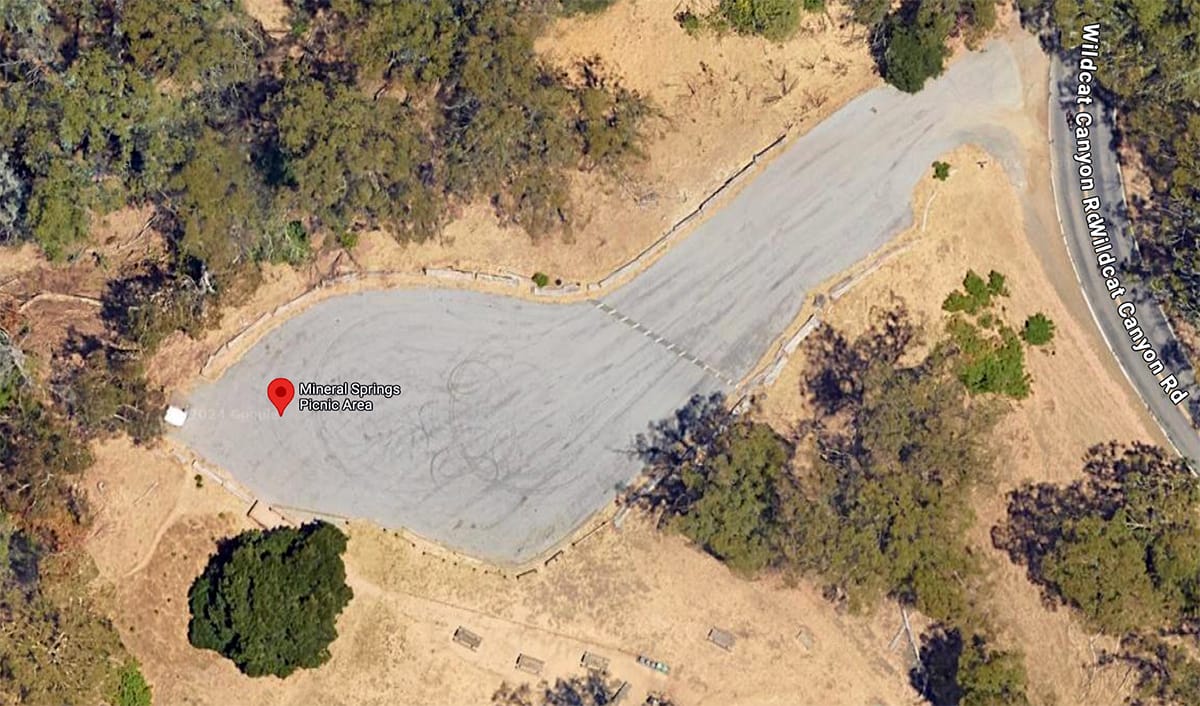
Capitola police officer Aron Quolas was one of the first officers on the case when it was still a missing person investigation. He took the stand last month.
On Dec. 12, Alyx Herrmann's brother Conrad called police to request a welfare check when she failed to show up in Hawaii to see their father. She never got on the plane.
That day, her house on 43rd Avenue in Capitola looked normal when Quolas stopped by. But Herrmann's brothers knew something wasn't right.
On Dec. 13, Quolas went back to the Capitola house to meet with Eric Herrmann, Alyx's other brother.
Eric had been worried when he found Alyx's personal items inside the house — her phone, her Apple Watch, her driver's license — things she should have had with her.
Quolas was involved with other aspects of the investigation as the weeks went by but the case took a turn Jan. 1, he testified.
That day, Quolas had been about to head home at 10 p.m. when Detective Zack Currier told him he needed to drive to the Mineral Springs picnic area in Tilden Regional Park.

Quolas said he wasn't familiar with the 2,000-acre park when he set out that night. He arrived Jan. 2 at about 2:45 a.m.
At that point, multiple law enforcement agencies, including the East Bay Regional Park police, were already there trying to find Herrmann's body. She'd been missing for nearly a month.
It didn't come up during trial, but Lengyel had told police he'd left a noose near Herrmann's burial site. He'd tried to hang himself but failed.
The tip put police in the vicinity of Herrmann's body, but they hadn't been able to find her.
On the stand, Quolas described driving into the sprawling park mostly in darkness, seeing thick brush and trees around him on the rocky hillside.
In addition to other duties at Capitola PD, Quolas is the department's only K-9 officer, he testified. As a result, he's had four years of training in how to track lost and missing people.
"Whenever something like this happens, they give me a call and ask for help," he said.
Part of his training involved learning how human odor "pools or sets" in certain areas, he said, and how to work with his dog to find the target.
But, on Jan. 1, his dog was recovering from an injury, so Quolas went to Tilden on his own to see if his training might help find Alyx.
When Quolas got to the Mineral Springs picnic area, he stepped back to survey the landscape and began following the "easiest path of travel" leading away from the parking area.
He walked off the concrete into a wooded area that led into a ravine surrounded by thick brush.

Quolas followed the ravine as it dropped down the hillside, noting puddles in the area and leaves wet from a recent rain.
As he walked, Quolas began to notice the smell of human decomposition.
"Every time I would walk or hit a puddle, the odor would grow or become much stronger," he said. "I paused for a moment, thinking about the training I would use for my K-9."
Quolas said he had learned how dogs will sometimes track smells to the corner of a room, even when no one is there. That's because scents "pool" in corners and may be strongest there.
When that happens, K-9 teams are trained to turn in the opposite direction to continue the search.
"I'm walking this way and these odors are growing," he said, indicating his path on a map in the courtroom. "I told myself to walk the other way and go back up the ravine."
As he turned to retrace his steps, Quolas said he began to see "areas of the ground that didn't really match the natural lay of the forest floor."
He saw branches that "appeared to be unnatural" and rocks that had been moved. The branches looked like they had been stacked in place and the rocks just "didn't fit."

Quolas described walking through the pitch blackness using his flashlight to aid in his search.
He could still smell decomposition, but it wasn't as strong as before.
Quolas said he began to look closer at the branches in the area.
And, when he lifted one gently, something that appeared to be a clump of human hair came with it.
Quolas called over a detective for a second opinion. They agreed it looked like hair.
"We slowed the entire search down," Quolas said, "being very mindful of what we moved and what we touched."
Officers began gingerly moving rocks in the vicinity until they could see into a gap in the ground. They got down on their hands and knees to get a better look.
"We saw what appeared to be either a knee bone or a femur," Quolas said.
At that point, the officers froze the scene. They alerted Detective Currier to their discovery and called for crime scene investigators to respond.
The CSI team arrived as the sun was coming up and recovered Alyx Herrmann's remains.
Alyx Herrmann's murder: Who found the audio recording?
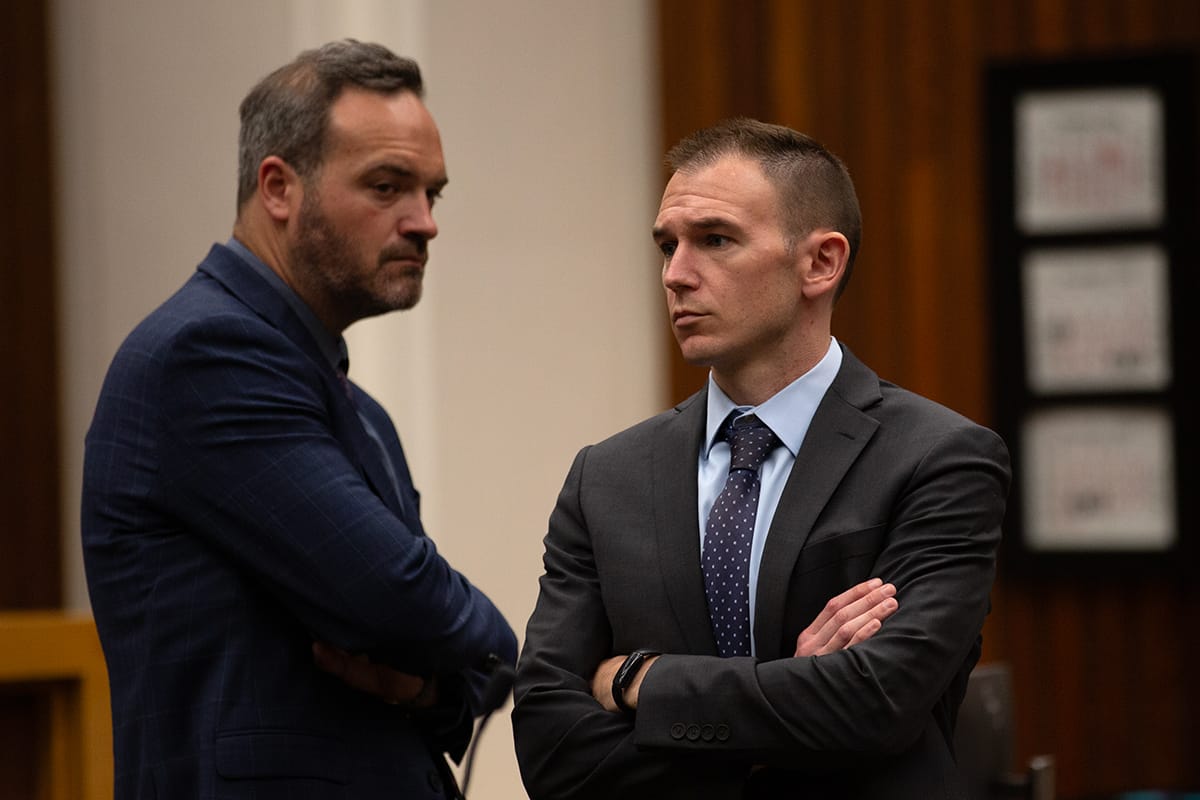
One of the last witnesses to take the stand during the murder trial was Steve Ryan, an inspector with the Santa Cruz County district attorney's office who worked closely with Capitola PD Detective Zack Currier to solve the case.
Ryan, who retired as a sergeant from the Santa Cruz County sheriff's office before joining the DA's office, is part of its domestic violence unit.
Over the years, he's developed expertise in digital forensics and testified as an expert on the subject during the murder trial.
As part of the prosecution team, Ryan was a daily presence in the courtroom throughout the trial.
On the stand, he described how the DA's office had used a "brute force attack" to get into Lengyel's cellphone after getting a warrant to search it.
On the phone, Ryan had found a photograph Lengyel had taken Dec. 9 of what appeared to be a fresh bitemark injury on his bicep after the murder.
As part of his broader data analysis, Ryan also found Google Maps activity linked to Lengyel's email address, under the handle "continuousperfection," showing how Lengyel had searched around Tilden's Little Farm and zoomed in on the Mineral Springs picnic area where Herrmann's body would be found.

But the most significant piece of evidence Ryan found — eventually — was the 3-hour recording Herrmann made the night of her murder.
Prosecutors said they would never know for sure why Herrmann started the recording, but friends said they believed she had done it for a reason, wanting to document the issues she'd been having with Lengyel and sensing a tough night ahead.
It's also possible the couple had argued before she began recording — given Lengyel's day in court on his animal cruelty case and his stop by the liquor store on his way home.
On the stand, Ryan described how, early in the investigation, he noticed cellphone activity on the night of Herrmann's death from an app on her phone called Just Press Record.
But he hadn't found any files from the app in the place he checked first: a folder from her cellphone extraction called "recordings."
That's where he'd located voice memos, voicemails and files like that in the past.
When Ryan didn't see anything from Just Press Record in the recordings folder, he'd moved on to other evidence in the case.
Fast forward to Sept. 22, he said, as he was preparing to take the stand in the murder trial, which had started several weeks earlier.
As he was going over the evidence, he decided to open the "audio" folder from the cellphone extraction. It contained about 55,000 files, everything from streaming music to ringtones to other types of audio files.
That's when Ryan discovered the 3-hour Just Press Record file from Dec. 4, 2023. It began around 9 p.m. and ended shortly after midnight, overlapping with Herrmann's murder.

On the stand, Ryan described how the recording had begun benignly, with someone playing piano and Lengyel singing.
As the couple eventually argued over Lengyel's exhortations to play pool, the interaction devolved into what Ryan described as "three significant violent encounters" that took place while Lengyel restrained Herrmann, possibly by putting his body weight on top of her.
In one of those incidents, Herrmann bit Lengyel on the arm as he tried to strangle her, Ryan said.
A prolonged struggle followed, involving what Ryan described as the sound of strangulation with Herrmann screaming, her voice scratchy and trailing off at times.
Then the two spoke one last time after Lengyel released his hold on Herrmann's neck, Ryan said.
"There is a final confrontation where Alyx is screaming 'stop it' … before her voice goes dim, [and gets] scratchier and scratchier, fainter and fainter," Ryan said, as Alyx "is finally made unconscious and ultimately killed."
After explaining how he'd found the recording, the jury listened to it in full with the aid of transcripts.
The judge told jurors they could take breaks if they needed to, but no one took her up on it.
When authorities first found the audio file, they hypothesized that Lengyel may have seen the phone recording and stopped it himself after he killed Herrmann.
In recent weeks, Herrmann's friends said that's unlikely because the app's activity isn't obvious to someone who happens to pick up the phone.
On the stand, Ryan established that the recording had stopped automatically when Lengyel called Herrmann's phone after he killed her, likely to fabricate a conversation. (The call lasted 18 seconds, according to court testimony.)
Theobald Lengyel: Guilty of first-degree murder
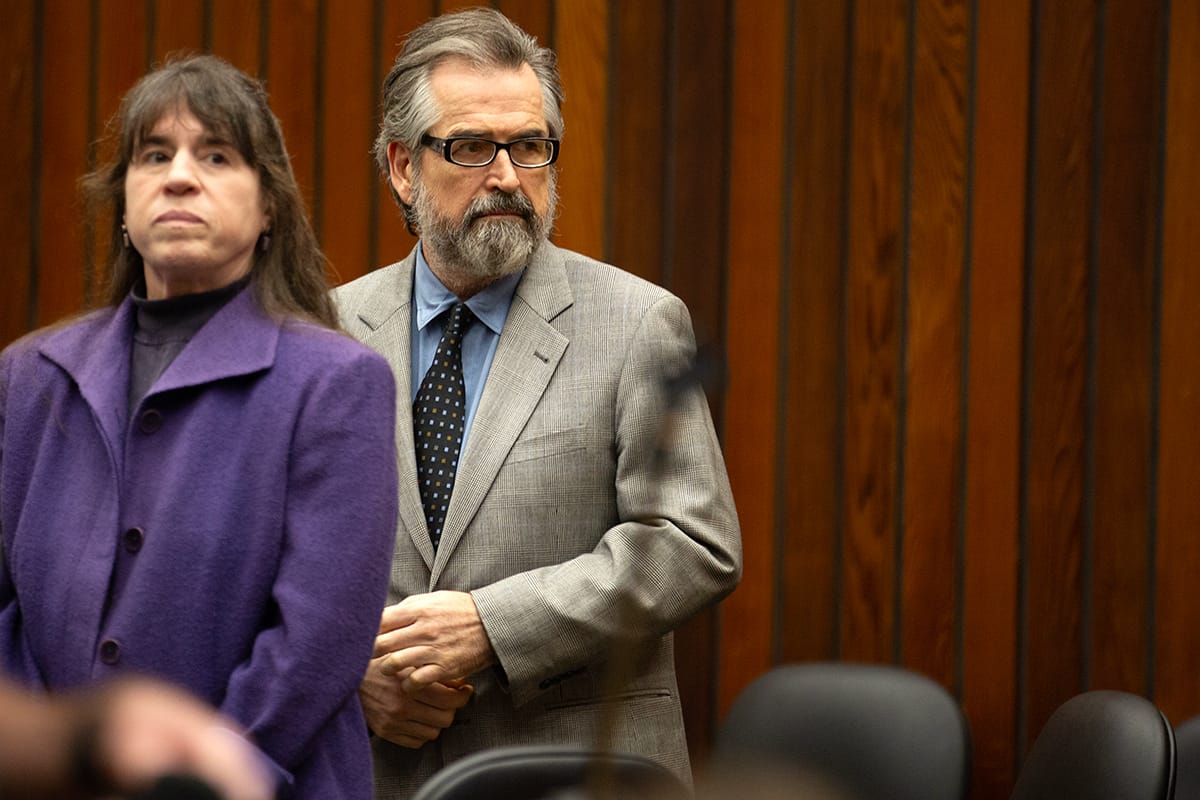
On Thursday, shortly after 4 p.m., all 12 jurors filed back into the courtroom with their verdict.
They had chosen a foreperson and begun deliberations that morning.
Although the case originally involved several charges and enhancements, in the end, the prosecution left just one count on the table, charging Theobald Lengyel with Alyx Herrmann's murder.
After a full day of discussion, the jury found him guilty of first-degree murder.
There wasn't much time to get to court when the jury reached its verdict, so Herrmann's group of devoted family and friends who had attended the trial was smaller than usual.
During closing arguments earlier in the week, about 30 people had come to court to show their support for her, filling all the rows behind the prosecution table and spilling onto the defense side.
On Thursday, Herrmann's brother, Eric, sat in the front row next to his wife, Lisa. More than a half-dozen members of Outrigger Santa Cruz, the paddling club Alyx Herrmann belonged to, sat behind them.
Across the aisle, Lengyel's older brother, Jed, was the lone supporter on the defense side.
Jed told The Scanner that he didn't condone anything that happened, and wished he had known enough to have intervened to help Alyx.
But he said he still had to be there for his brother.
Several people in the audience cried audibly when the guilty verdict came in, as months of pent-up grief and relief poured out.
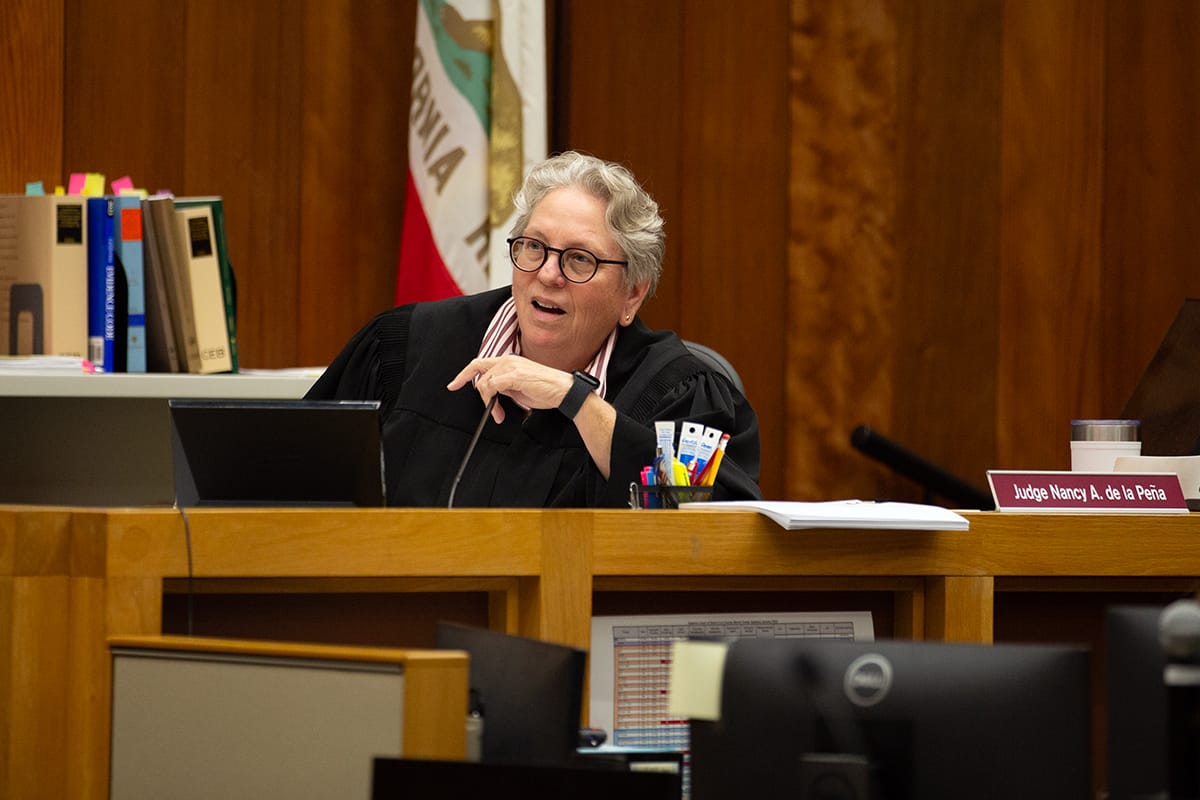
The reading of the verdict took less than a minute.
Afterward, Judge Nancy de la Peña offered her appreciation to the jury for its work.
"When this started, nobody thought you would be here for six weeks," she said.
She also told them that, in her 40-year legal career, "You have been the most attentive jury I have ever seen."
"Sitting on a jury is not losing the lottery — it is winning," she said. "In this case, it was a very, very, very serious matter — and one I'm sure … [you will] hold with you throughout your life."
Theobald Lengyel is scheduled to be sentenced before Judge de la Peña on Nov. 7.
"I'm trying to find some reason why he would do that"
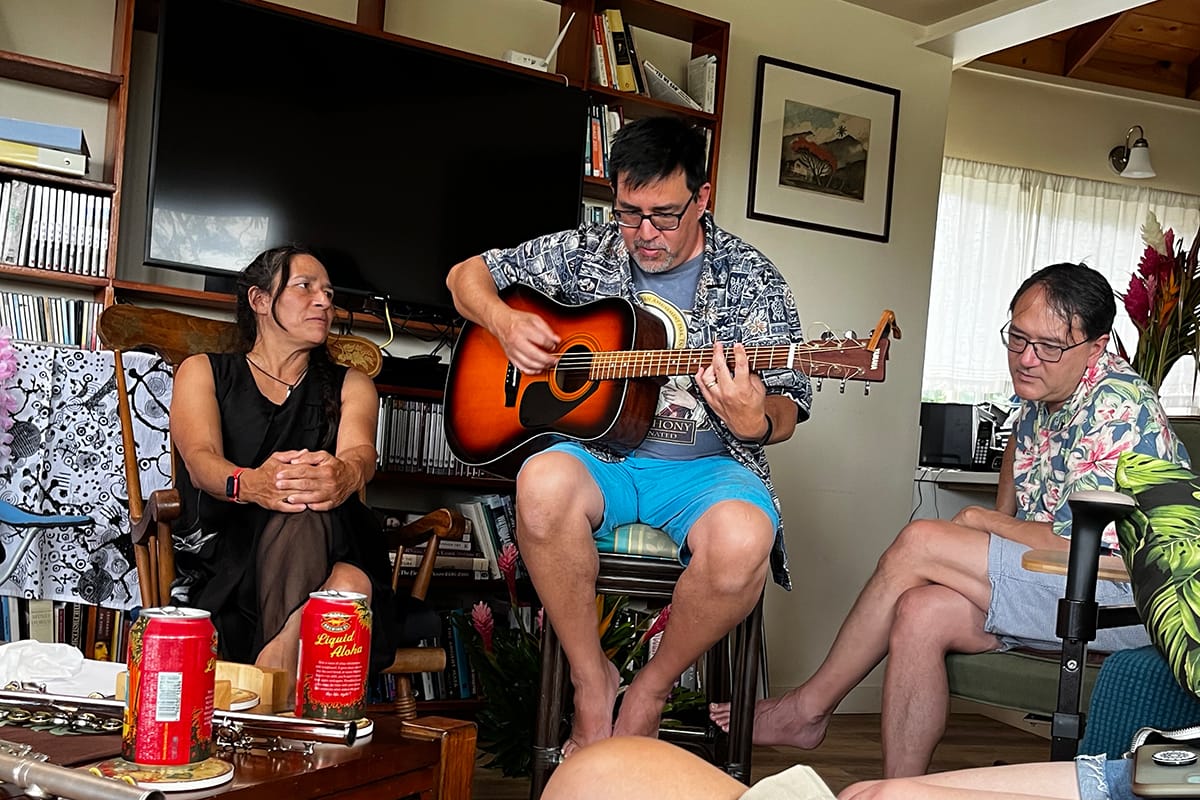
Before leaving the courtroom, Alyx Herrmann's brother Eric hugged each member of the prosecution team in turn.
Their eyes were red and teary. The moment was heavy, even with their relief.
Reflecting on the verdict several minutes later, Eric said he wished he had known so much more about his sister's life.
Despite all her connections and the strong community around her, Alyx had kept so much to herself.
Eric said he hadn't known until later that his sister sometimes slept in her car to get away from Lengyel when he was angry.
She was planning to retire just a few months later, to move to Hawaii to care for their elderly father and spend her days canoeing in the ocean.
She was going to leave Lengyel and he would not be going with her, Eric said.
That last night, he said, "she basically told him to get out and that it was over. And ultimately that's what killed her."
"I'm a rational person," he continued. "I believe in logic and data and things like that. And I'm trying to find some reason why he would do that. To someone he loved, supposedly. And I have no answer for that."
Eric said he had spoken to many people in the aftermath of his sister's death. And none had known the extent of the difficulties she was facing.
"My hope is, if there's any good that comes with this," he said, "that other people recognize something of this happening in their own relationships, or someone they know, and that they seek out some outside help."
He said he had known about some of the dynamics — but most had been hidden.
"I wish she had told me about more because, obviously, that's the only way that someone's going to be able to do anything about it," Eric said. "I have those regrets. Like, what if — what if I could change the past? And what if I had known?"
He said he knows he's not supposed to blame himself, and that there's no way to change the past.
"I understand all that," he said. "And yet those things are still there."
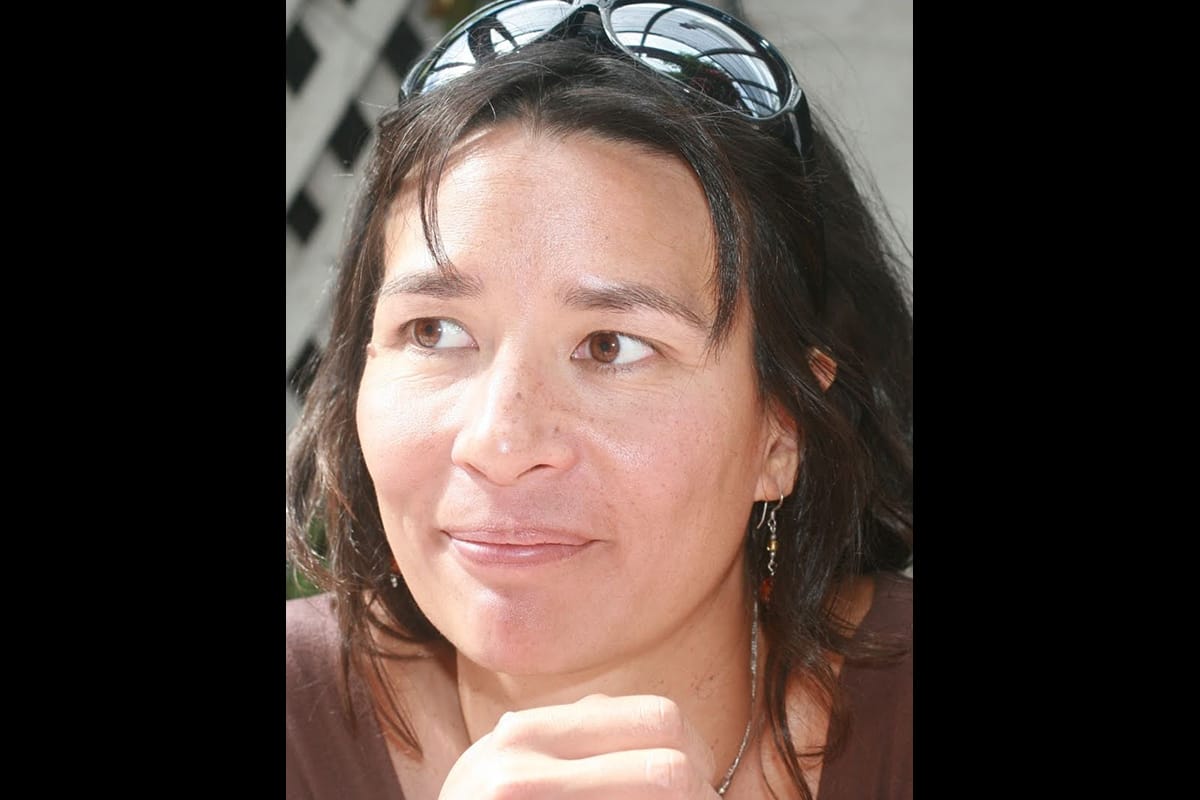
The family of Alice "Alyx" Kamakaokalani Herrmann has asked those who would like to honor her to consider donating to the causes that were closest to her heart.
- The Maui Strong Fund
- The Kākoʻo Maui Fund
- Outrigger Santa Cruz
- Hana Canoe Club
- Or "any ocean or environmental cause"





